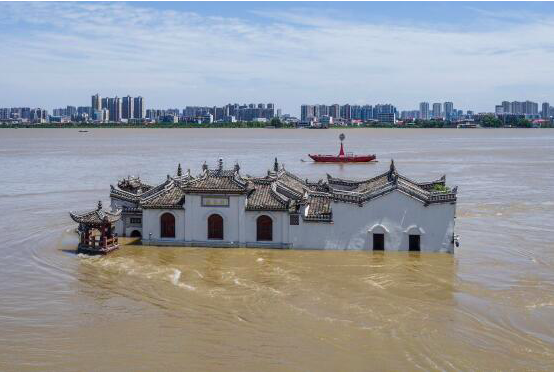In an interview with Le Monde, Swiss climatologist Sonia Seneviratne notes that extreme events are becoming commonplace. She fears that tipping points with unpredictable consequences may be reached.

A Guanyin temple partially submerged by floodwaters from the Yangtze River, in Ezhou (Hubei province, China), July 6, 2024. AFP
Heatwave in the USA, fires in Russia, torrential rains in China… Swiss climatologist Sonia Seneviratne, Professor at the Swiss Federal Institute of Technology in Zurich and Vice-Chair of Working Group 1 of the Intergovernmental Panel on Climate Change (IPCC), looks back at the many extreme events currently affecting the planet.
Is climate change solely responsible for all the disasters that are multiplying in 2024?
What’s striking is that all this is happening at a time when the El Niño phase [a warming of the equatorial Pacific that is pushing up global temperatures] is over. It is therefore mainly the effects of climate change, linked to human activities, that are materializing before our very eyes in dramatic fashion. The planet has warmed by 1.2°C compared with the pre-industrial era, resulting in more frequent, longer and more intense heatwaves. Warmer air increases soil evaporation, aggravating droughts. But, at the same time, it can hold more moisture, which increases extreme precipitation. With warming, tropical cyclones tend to become more intense and bring more rain, as we saw with Beryl.
Is this a new normal?
Not really, because if we don’t immediately reduce greenhouse gas emissions, the situation will get even worse. Heat waves that occurred once every ten years in the pre-industrial era are now occurring three times every ten years with 1°C global warming. They will occur four times every ten years with 1.5°C warming, and nine times with +4°C. At +2°C, precipitation will be on average 70% more frequent on the continents, and at +4°C, 170%.
Source: Le Monde



